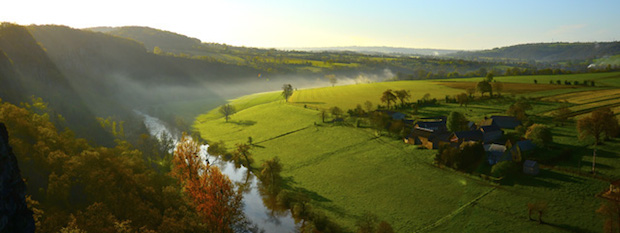A few clients have been asking "do the clocks go back, and forward in France for daylight saving time"? which is a pretty good question if you are planning a viewing trip, after all you would not want to be a hour late for the viewing would you! or even an hour early!
The answer is...
In France it is just the same as the UK.
Daylight saving time (DST) - As we know it is the biannual event when we forget whether to put our clocks one hour back or one hour forward, and whether this means we’ll get some extra sleep or not.

Photograph: Peter Dazeley/Getty Images.
Why is it that we have to turn the clocks back?
In the UK, clocks go back one hour this Sunday (today!) – the 26 October – at 2:00am, marking the end of British Summer Time (BST). It means that we end up having a 25-hour day.
It also means that in the UK we’ll be back on Greenwich Mean Time (GMT) and sunrise and sunset will be about one hour earlier this Sunday than the day before – so there will be more light in the morning.
If you’re forever confused about which way the clocks move and when, an easy way to remember is the saying: “Spring forward, fall back.”
Why do we do it?
The modern idea of daylight saving time was first proposed in 1895 by English-born insect specialist and astronomer George Vernon Hudson.
Hudson did shift work and during his leisure time he collected insects, so valued the dear moments of his daylight after-hours. He proposed a two-hour daylight saving shift and presented it in a paper to the Wellington Philosophical Society.
In his abstract, Hudson proposed:
“To alter the time of the clock at the equinoxes so as to bring the working-hours of the day within the period of daylight, and by utilising the early morning, so reduce the excessive use of artificial light which at present prevails.”

Yet Hudson’s ideas were not followed through, and it fell to British builder William Willett in 1905 to raise the issue of introducing DST again. Willett’s idea was more complex and he suggested setting the clocks ahead 20 minutes on each of the four Sundays in April, and switching them back by the same amount on each of four Sundays in September – a total of eight DST switches per year.
However, Willett’s daylight saving plan caught the attention of Liberal Party MP Robert Pearce who introduced a bill to the House of Commons in February 1908. The first daylight saving bill was drafted in 1909, presented to parliament several times and examined by a select committee. However, the idea was opposed by many, especially farmers, and the bill never made it into a law.
It was during the first world war that Germany became the first country to implement DST, on 30 April 1916, in order to save fuel for the war effort. Thereafter, other countries followed suit and the concept was adopted by Britain. DST was first used in the UK on 21 May 1916.
Why is it controversial?
The debate about how we should set our clocks has been going on since standardised time was introduced with the expansion of the railways in the 1840s. Historically, proponents of DST have argued that it saves energy, promotes outdoor leisure activity and is good for economic productivity. It has therefore received support from retail businesses and urban workers, who benefit from having lighter summer evenings. Some groups who prefer lighter mornings, like farmers, argue that the economic benefits of DST are unproven and that we should just stick to GMT all year round.
Campaign groups advocate keeping DST over the winter months and putting the clocks forward a further hour during summer, giving the UK the same time zone as much of central Europe.
The Royal Society for the Prevention of Accidents has argued that lighter evenings would reduce the number of accidents, while environmental campaign group 10:10’s Lighter Later campaign says that the move would “save almost 500,000 tonnes of CO2 each year, equivalent to taking 185,000 cars off the road permanently”.
The issue has been put to parliament regularly over the years. In 2010 Conservative MP Rebecca Harris tabled a private member’s bill that would require the government to conduct an analysis of the potential benefits of putting the clocks forward for a further hour for all or part of the year.
The idea was opposed in part because of the effect it would have on areas of Scotland and Northern Ireland, where the sun would rise as late as 10am and children would have to walk to school in darkness. David Cameron said he would consider the proposals seriously, but ruled out having different time zones within the United Kingdom.
NOTE: Original article appeared in the Guardian Newspaper.
Blog submitted by: Alex at The French Property Network - Cle France.